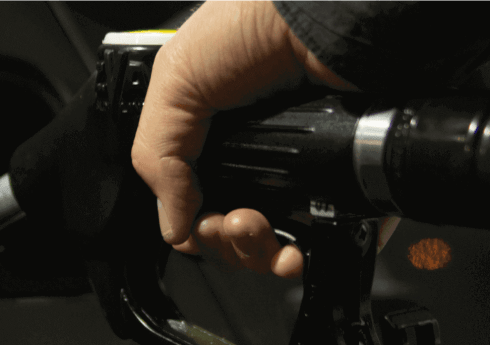How Will the Current Fuel Price Rise Affect Businesses?
Since the start of 2022, UK fuel costs have rapidly increased, with current petrol and diesel prices averaging £6 per gallon, which is significantly higher than previous years. This has had a notable effect on businesses who rely on commercial vehicles for day to day operation, and have begun to notice a serious increase in fuel outgoings.
As a business owner, you may be wondering why fuel prices are rising and when will fuel prices drop. To help you get a better understanding of the current fuel situation, we will look at the reasons behind the sudden increase in fuel and what your company can do to lessen the impact.

Why are Fuel Prices Going Up?
Despite only being three months into 2022, there are a lot of ongoing global issues which have had a direct effect on the prices of fuel, including:
COVID
The price of fuel has fluctuated since the start of the pandemic in 2020. For instance, during the UK lockdown, there was a drop in demand for fuel which meant prices were much lower. Now restrictions have been lifted, the need for fuel has increased, however fuel suppliers have struggled to meet new demand, which has caused prices to shoot up for crude oil and associated products.
Conflict
The current tension between Russia, Ukraine and the West has caused fuel prices to increase rapidly. These costs are expected to surge as the conflict continues, especially as Russia is the third-largest oil producer in the world, as it provides 10% of global fuel output to the rest of the world. This will worsen if Russia implements sanctions on the West which will prevent fuel exportation and result in a shortage issue, which of course, will increase fuel rates.
OPEC
OPEC – the Organisation of Petroleum Exporting Countries is an intergovernmental organisation that coordinates and regulates the petroleum policies of its fifteen member countries. These countries include:
- Angola
- Algeria
- Congo
- Ecuador
- Equatorial Guinea
- Gabon
- IR Iran
- Iraq
- Kuwait
- Libya
- Nigeria
- Qatar
- Saudi Arabia
- United Arab Emirates
- Venezuela
The main aim of the organisation is to prevent petrol price fluctuations. However, in April 2020, the member countries made the decision to cut oil production due to an ongoing surplus. This has reduced access to petrol and forced prices to surge.
Fuel Retailers
Fuel retailers, specifically petroleum providers, have not adjusted their prices straight away, even as wholesale prices have dropped. Larger petrol retailers have recently been accused of profiteering by the RAC, who have urged retailers to drop their prices to help consumers access the fuel they need to work and live.
When Will Fuel Prices Drop?
Many companies are worried about the continued increase in fuel prices; however, there is a glimmer of hope, as wholesale fuel costs have started to drop. This could lead to a drop in pump prices, which will relieve some of the financial pressure from businesses that rely on discounted fuel rates.
3 Ways Higher Fuel Costs Can Affect Businesses
The fuel price rise will also affect the following:
Increased Supply Chain Costs
The increase in fuel costs will undoubtedly affect a company’s supply chain, as vendors and suppliers will be forced to increase their costs to accommodate the fuel price surge. This will lead to higher outgoings and lower profit margins, especially for transportation businesses.
Lack Of Customer Demand
Higher fuel prices and increased supply costs could force businesses to adjust their prices to prevent any shortfalls. This could force customers to look for cheaper alternatives, which could significantly affect sales.
Workforce Cuts
As a company’s outgoings increase, they may need to consider making staff cuts to prevent financial issues. Depending on the business, workforce cuts may be inevitable to help companies stay afloat.

How Can Companies Save on Fuel?
To prevent a significant dent in your company’s fuel outgoings, you should consider the following fuel saving tips:
Invest in Fuel Cards
Another excellent way to save on fuel is by investing in a company fuel card, which is solely used to pay for fuel and is a great way for companies to monitor fuel spend. Fuel providers typically send out weekly or monthly automated invoices with the details of each commercial vehicle, which helps businesses keep track of fuel spending.
UK Company fuel cards offer a wide range of perks, including lower fuel costs, as the majority of fuel card providers offer weekly fixed rates. This will enable you to benefit from excellent discounts at well-known and independent fuel stations across the UK and Europe.
When choosing a company fuel card, you should look for providers that offer access to a range of convenient fuel stations, including supermarket sites. To help you find the right fuel card for your company, you can compare some of the best fuel card providers by using iCompario’s free comparison tool. This will ensure that you find the perfect fuel card, which will help your business combat increased fuel costs.
Switch to Electric
One of the best ways to avoid rising fuel costs is to make the switch to electric vehicles, as this will help you save in the long run. Electric vehicles are more expensive to buy; however, you can save a significant amount on charging and maintenance, especially if you have a large fleet. You can also benefit from government grants which can be put towards your EV fees.
Switching to electric vehicles will not only save on fuel costs but will also significantly reduce your company’s carbon footprint, as electric vehicles produce far fewer carbon emissions than petrol or diesel vehicles.
Encourage and Monitor Driving Techniques
To keep costs down, you should educate and monitor your drivers on the best driving practices for maximum fuel efficiency. For instance, if the speed limit is over 50mph, then it is ok to use the air conditioning, however, if the driver’s speed is under 50, then they should open a window to prevent fuel waste. It would also help if you also encourage drivers to turn off the engine every time they exit the vehicle, as an idle engine uses up more fuel than restarting the engine.
Drivers should also keep an eye on the rev counter and avoid over or under-revving. This can be monitored with a high-quality telematics system that can showcase a driver’s performance. By keeping an eye on your drivers, you can significantly reduce your fuel costs by prioritising driving efficiency.



